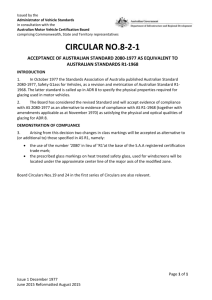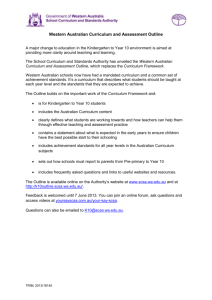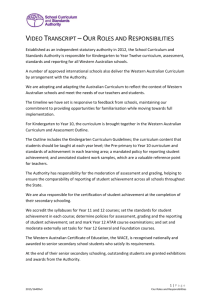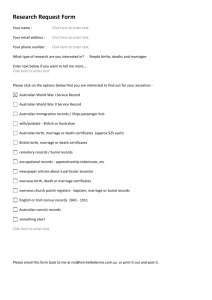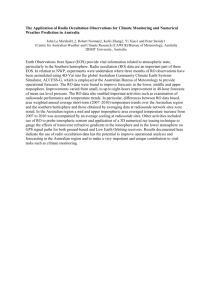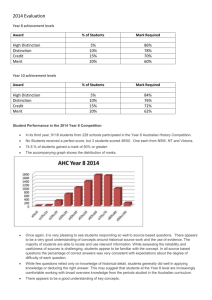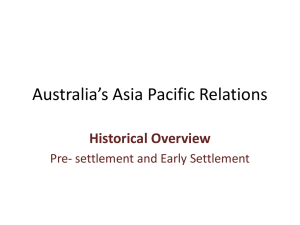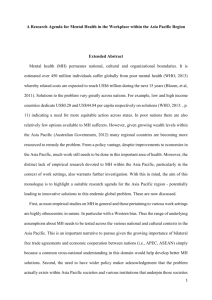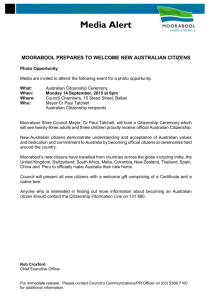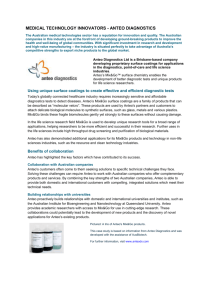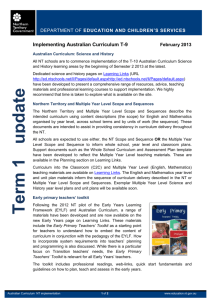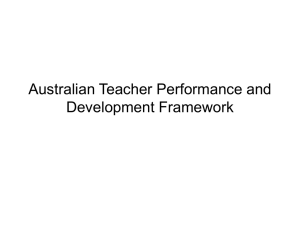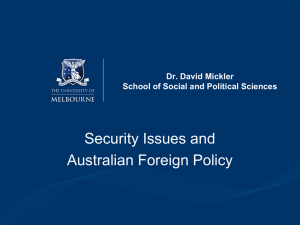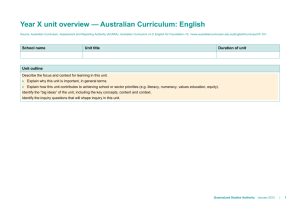AUSTRALIAN AID: PROMOTING GROWTH AND STABILITY
advertisement
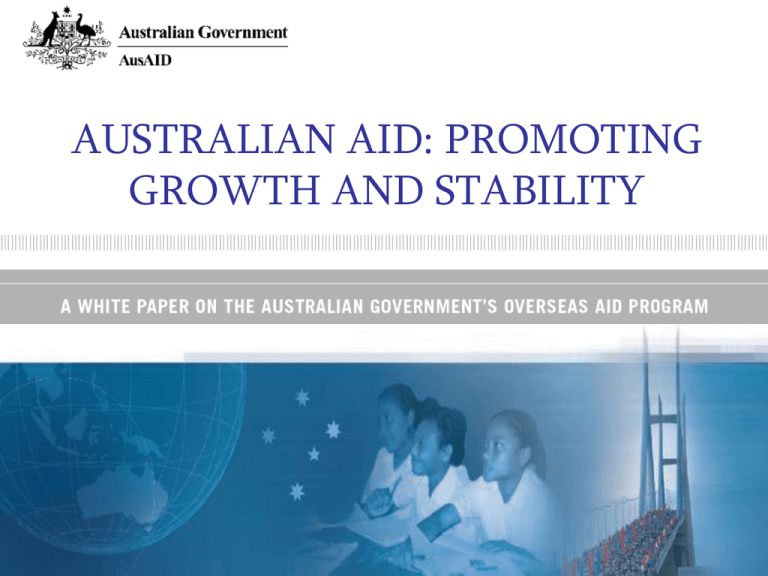
AUSTRALIAN AID: PROMOTING GROWTH AND STABILITY A commitment to aid volume…. • Prime Minister’s announcement at UN Summit in September – Doubling to $4 billion by 2010 – Conditional on strengthened governance, anti-corruption efforts and aid effectiveness AUSTRALIAN AID: PROMOTING GROWTH AND STABILITY Outline of the White Paper 1) 2) 3) 4) 5) 6) 7) Introduction Operating environment, values and interests Strategic framework Where Australia will work, and why What the aid program will focus on Strengthening effectiveness Aid management Average annual GDP per capita growth in the Asia–Pacific region, 1995 to 2004 Operating Environment • Major reductions in poverty in Asia Pacific • But…. – – – – significant disparities between and within countries existing challenges intensifying, new challenges emerging high absolute number of poor a region of developing countries, many are fragile (e.g. Solomon Islands, PNG, East Timor), and Indonesia Development lessons • Economic growth central to poverty reduction • Countries that have integrated grow faster than those that have not • Growth by itself not sufficient – needs to be sustained and shared • Institutions matter • Each country’s path is different • Aid only small part of the development equation • Poor aid can do harm • Need new approaches to fragile states. Strategic Framework • Objective • Asia Pacific focus • Overarching principles of gender equality, fully untied aid and partnership AUSTRALIAN AID: PROMOTING GROWTH AND STABILITY Thematic Initiatives • Growth – infrastructure : ideas and funding. • States - incentives for good performance up to 10% of total aid budget over time. • People – major scaling up of health, focussing on women and children, and education to get more children into school for longer and a better education. HIV/AIDS, pandemics, malaria. • Regional stability – regional responses to transboundary threats. Effectiveness • Office of Development Effectiveness and Annual Review linked to budget cycle • Output based aid • Country strategies covering all ODA, performance frameworks and link to allocations • Anti-corruption • Australian engagement – research, linkages • Partners: delegated responsibility, leveraging multilaterals External communication is a critical function to support aid effectiveness It does this in two main ways: 1. 2. As a critical component of development activities: to inform, educate and assist in changing behaviour Informing taxpayers and aid recipients about our aid program. The risks of not communicating: 1. 2. Our aid is less effective We lose public support and therefore political support. Conclusion • Geographic flows: rebalancing to Asia from Pacific • Not just more aid • Different way of doing business for AusAID and other Australian agencies • Greater focus on effectiveness, less contracting out • More rigorous approach to corruption • Greater use of partner government systems and processes • Very different aid program and agency in 2010, more effective, more transparent and more integrated.



